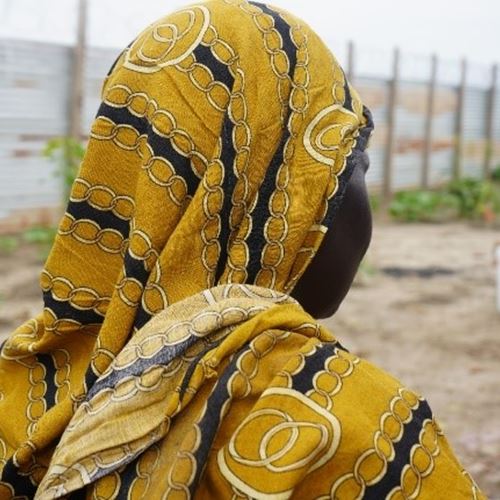News
Breaking the Chains of Abuse in Bentiu
Living happily in Unity State, Mary’s (name changed for privacy) life took an unexpected turn in 2021 when she was displaced by a devastating flood.

The waters forced her and thousands of other families to leave their homes and find shelter in Rubkona. She was not alone in her journey.
Mary was accompanied by her nine children, all of whom relied on her for safety, care, and support. The flood that uprooted her life was not the only challenge Mary faced. A more sinister form of hardship was the psychological violence inflicted upon her within the confines of her own family.
At the age of 13, Mary entered a marriage that would become the source of unimaginable suffering. Her husband, the person who should have been her partner in life, brought her anguish.
He would only visit her to father children and then disappear from their lives. It was a cycle of abandonment that left Mary alone, and responsible for their growing family.
Mary was also exploited financially. Whenever Mary attempted to start a small business to provide for her family, her husband would forcefully take away the money she had earned.
Refusing to comply meant enduring physical abuse. The harrowing choice between her safety and her children’s well-being became a constant, unbearable reality.
In an attempt to secure a better future, she started a charcoal business. However, her husband monitored the progress of the charcoal production and would demand the earnings.
Mary, fearing the consequences of refusal, had no choice but to comply, further entrapping her in this cycle of abuse.
DRC Women and Girls-Friendly Space
In the midst of her struggles, Mary discovered hope through the DRC Women and Girls-Friendly Space. This haven has become a sanctuary where she seeks solace, counseling, and a supportive community of women who had experienced similar challenges.
DRC’s four Women and Girls-Friendly Spaces serve as sanctuaries where women and girls who have endured various forms of violence and offer a range of services, including case management, counseling and psychosocial support, and raising awareness about gender-based violence.
In these secure spaces, survivors can access a network of resources that empower them to rebuild their lives and regain a sense of control. Furthermore, these spaces provide crucial referrals to specialized support, facilitating a seamless transition into further care if necessary.
DRC also trains GBV survivors in life skills and different vocations equipping survivors to build a brighter future. These spaces are much more than physical locations; they represent hope and support, offering solace and a path to recovery for women and girls who have experienced violence in its various forms.
The Women and Girls-Friendly Space offered Mary means of escape from the psychological trauma. She found a place where she could openly talk about her experience and seek the guidance and support, she desperately needed.
Talking to fellow women who had walked similar paths is helping her cope with her past and work towards healing and resilience.
Mary’s ambition to break free from the chains of oppression is a powerful reminder that, with determination and support, survivors can overcome the most challenging circumstances and work towards a brighter future for themselves and their children.

